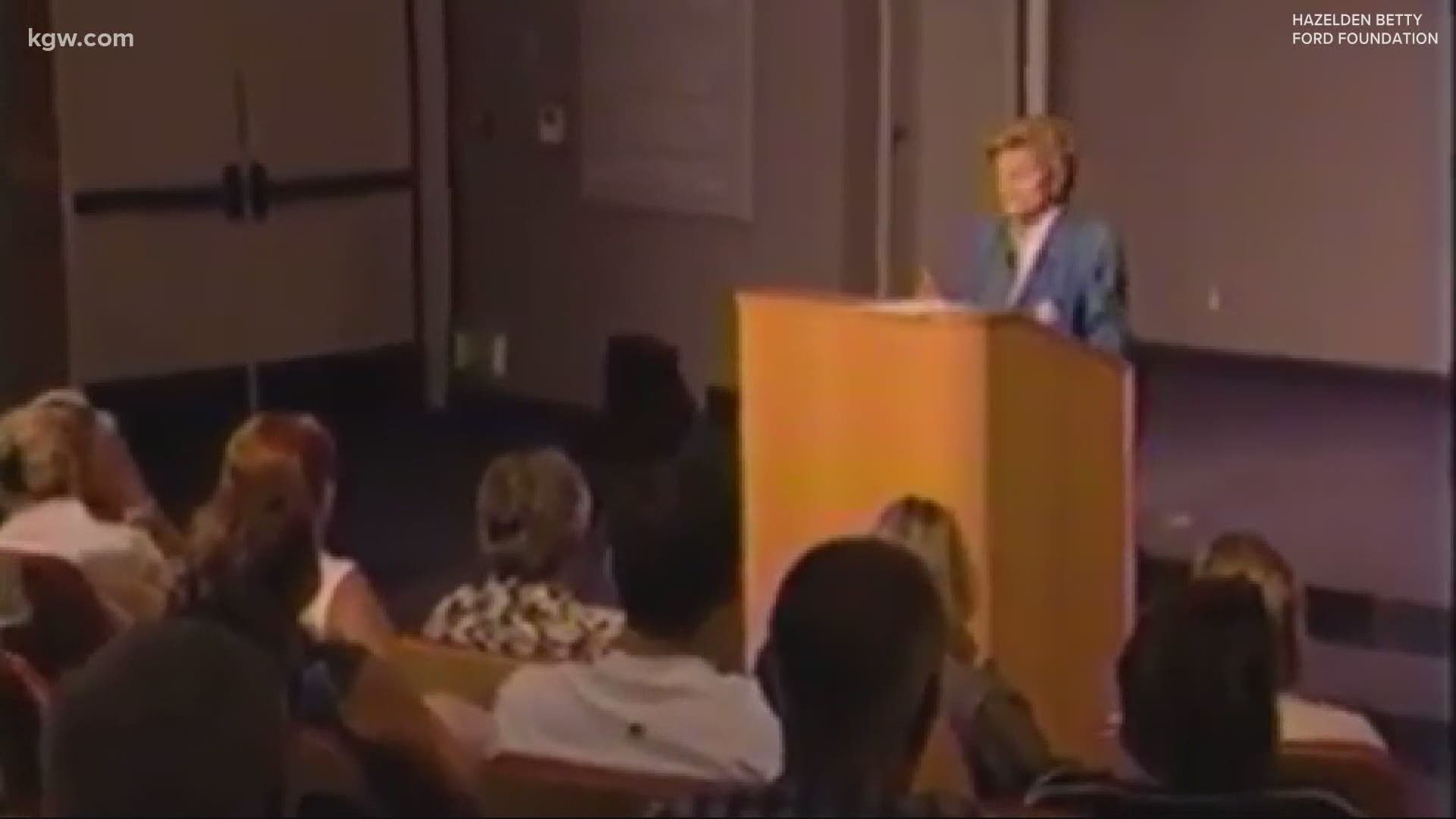PORTLAND, Ore. — First ladies are known for taking on issues during a president's term in office. For Betty Ford, it was a personal one that continues to change lives 40+ years later.
Betty Ford was plunged rather unwillingly into the public spotlight when her husband, Gerald R. Ford, took over for Richard Nixon in 1977 after Watergate. She expected her husband to retire from politics. Instead, he took over the highest office in the country.
Betty Ford was known for straightforward honesty, openly speaking about women's rights.
"Being ladylike does not require silence," she said during the International Women's Year Conference of 1975.
She also shared her battle with breast cancer.
"And back in the 1970s, people just didn't do that!" said William Moyers of the Hazelden Betty Ford Foundation.
However, Moyers said the former first lady had an even bigger secret.
"She not only stood up and spoke out about her fight with breast cancer, but also her addiction," Moyers said.
In 1978, Betty Ford's family had an intervention and she headed off to residential treatment for alcohol and prescription drugs.
Betty Ford then shared her experience publicly.
"Instantly, Mrs. Ford became a beacon of hope and help to those who were in despair," Moyers said. "This is who I am, this is how I got better, and it's okay for you, too, to get help."
After leaving the White House, Betty Ford consulted with the Hazelden Foundation to learn about setting up a recovery center in California. In 2014, the organizations merged.
"I'm Betty Ford and I'm an alcoholic," she introduced herself during a lecture for the foundation, many years after first facing her addiction.
"I know I was very, very scared," Betty Ford described. "But [I survived cancer], and by golly I knew I was gonna survive [this] too."
Hazelden Betty Ford has two facilities in Oregon and one in Washington. Moyers said the organization has seen a surge in the number of people seeking treatment during the COVID-19 pandemic. He said with updated safety measures, the facilities have not had to turn anyone away in Oregon.
"Mrs. Ford would be proud," Moyers said. "It's her spirit that is alive and well today in places like Oregon."

